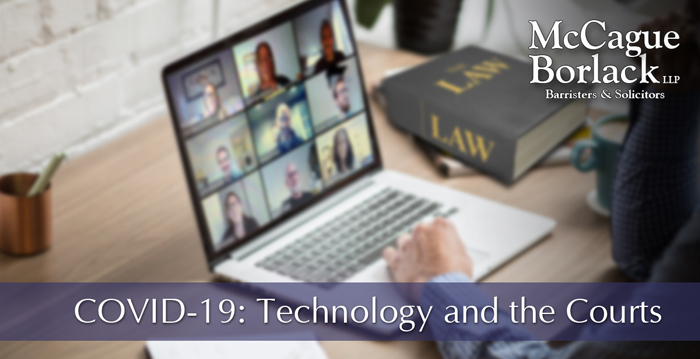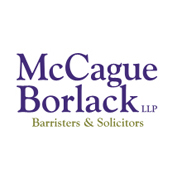Presently, the Court is now agreeable to hear a wider range of matters remotely and has expanded date ranges which previously limited hearings of settlement conferences. The Court has streamlined avenues of communication with Court staff, reopened Counter Service and now accepts email filings. The below discussion and timeline of the changes the Court has instituted over 2020 provides counsel and clients alike with clarity regarding the various court announcements, allowing for more straightforward and efficient resolutions of matters in these quickly changing times.
What matters will the Small Claims Court hear?
The Small Claims Court now accepts requests for the following to be heard remotely;
- Urgent motions and urgent garnishment hearings, on a case by case basis;
- Settlement conferences, if all the defendants have filed a defence or have been noted in default prior to August 31, 2020. Settlement conferences do not need to have been previously scheduled;
- Assessment hearings where a request to clerk was filed prior to March 16, 2020;
- Motions to set aside a noting in default or a default judgement;
- Motions in writing that are without notice to any other party, whether new or previously filed;
While previously the Court used the same request form for motions in writing as well as requests to clerk, the Court now requires that a different form be used for both these requests.
Small Claims Court is now held remotely over Zoom... |
Online Small Claims Court? Here's how it's done.
Small Claims Court is now held remotely over Zoom, an intuitive videoconferencing platform that can be downloaded to any computer. The Court makes the needed arrangements and provides the connection information to the parties by way of an email prior to the court date. In order to participate, parties will need a device with an internet connection that possesses a camera and microphone. In the case where a party cannot participate via Zoom videoconferencing, they are able to call a telephone number which will connect them audibly to the Zoom conference.
The etiquette of remote Zoom hearings is different in some ways compared to in-person hearings of the Small Claims Court. It is very important for all parties to participate from a private and quiet space. It is just as important for everyone to speak clearly so that parties have the best chance at being understood since internet connections can be unreliable. If on video, parties are expected to raise their hands and wait to be called on if they wish to speak; respectful interruptions are allowed when parties are participating via telephone only. It is also extremely important to ensure that the devices being used have enough charge or are connected to a charging port.
Tips for Teleconferences
- Using a landline will provide the best audio quality results.
- If using a cell phone, headphones with a built-in microphone and mute button can also be quite useful.
- Use of Voice over Internet Protocols (VoIP) is discouraged.
- A party should say their name whenever they start to speak.
- Parties should mute their phones when they are not speaking so background noise is reduced.
- Also, if using a cell phone, mute notifications.
- Do not put a Zoom call on hold.
Tips for Videoconferences
- As in with in-person court attendances, it is important to dress in appropriate business attire.
- Test the strength of your internet connection prior to the court date, and reduce the number of devices using your internet connection during the court attendance.
- Close any applications that are not in use during the hearing.
- If available, microphones are also useful to enhance audio quality.
- The Court requests that parties mute any notifications on their devices and also mute their microphones when a party is not speaking.
- Each person should log into the hearing 15 minutes before the scheduled start time, providing both first and last name.
- Look into the camera lens while speaking.
- Avoid sitting with your back to the window. Instead, flip your device, and face the window.
My Matter is Urgent! What Happens Now?
A judge ...decides on a case-by-case basis whether an urgent hearing will be scheduled. |
The Small Claims Court has continued to hear urgent motions and urgent garnishment hearings over telephone or videoconference during the COVID-19 emergency period. For these matters, a judge reviews each request and decides on a case-by-case basis whether an urgent hearing will be scheduled. Urgent hearings may pertain to cases where a judgement debtor has an outstanding warrant for arrest issued in relation to a Small Claims Court proceeding, or otherwise time-sensitive cases that would result in immediate and serious financial hardship if no hearing was held.
Settlement Conferences
If each defendant has filed a defence or was noted in default in the matter prior to August 31, 2020, the Small Claims Court will schedule a remote settlement conference on the consent of all parties to an action. To request a settlement conference on consent, one party must email the appropriate request form (available on the Superior Court of Justice website) to smallclaims.settlementconferences@ontario.ca in line with the email filing requirements. Regardless of which party completes the form, it must be signed by all parties, who must all agree to the method of hearing indicated on the form.
Pulling it all Together: Email Filing
Parties in the Small Claims Court are now highly encouraged to file their claims online, either through the Small Claims Court portal, accessible through the Attorney General of Ontario website, or through the appropriate email address for that court location, available through the Ontario Courts website. If this is not possible, parties are encouraged to file by mail. Most Small Claims documents may be filed by email, except for documents enforcing a judgement or order. These would include:
- Writ of Delivery,
- Writ of Seizure and Sale of Personal Property,
- Writ of Seizure and Sale of Land,
- Request to Renew Writ of Seizure and Sale, and
- Notice of Garnishment.
All filings and documentation, including photographs, must be submitted as a PDF file, with each document attached separately. However, request forms may be submitted in .doc format. Each email sent to the court, including attachments, must not exceed 35 MB. Electronic signatures are accepted as long as they are applied to .doc versions of forms which are then converted to PDF before being submitted. Handwritten signatures can also be used if a party signs a printed form, and then scans and submits it as a PDF.
Filed materials are required to indicate when and how service on responding parties was made, such as affidavits of service. The exception is in the case of ex parte matters, which are made without notice to responding parties.
Thoughts on the Future
As 2020 was full of unprecedented developments, and certainty is still a long way off, it is safe to say that the Ontario Small Claims Court will be assessing options for bringing more of its regular operations online as the months progress. The Courts continue to monitor the COVID-19 situation carefully, and are sure to make further changes as circumstances permit. A useful resource during these changing times is the Superior Court of Justice's website, where future publications and developments regarding the Small Claims Court will be posted under their “Notices and Orders – COVID-19” webpage.


